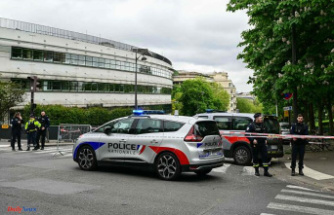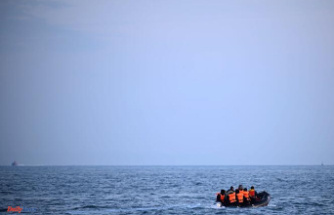Luis de Paul liked to say that the secret of his province lucidity had been a short-time infarction. "Not very serious, but important enough to raise some things." Self-absorbed in the morning craftsmanship of his study, after a long walk through the streets of Madrid, the composer was dedicated to translating the silence in a tiny moleskine, like a Robert Walser back from all the confines of the sound avant-garde: Atonality, Dodecafonism , Serialism, concrete music, even electronic. Since its inception as a member of the generation of 51 (which also adscribed Christopher Halffter, Carmelo Bernaola, Anton García April, Ramón Barce and Agustín González Acilu), he felt heir with a long chain of musical traditions that did not end up in the West And that he expressed through a sound order of undoubted humanistic, almost ethical transcendence.
The first music he heard were symphonies of Beethoven and Wagner's operas on 78 revolutions discs that was finding at home. Self-taught Since, being a child, he subjected the family gramophone to all kinds of experiments -ale as "filling the grooves of vinyls with bread crumbs" - he had to dedicate himself to other easements to keep alive the flame of his vocation in the years Gray Francoism. Before founding time and music, the Alea Group and the first Electroacoustic Music Laboratory of Spain, graduated by a legal cabinet, was employee of Iberia and, in the clear agenda, he also alternated as a teacher address. «Always active, but with the certainty that my future was outside of Spain. I came to think, even, that the uprooting could be eternal. "
In Spain exercised prescriber of modernity with scores that broke the molds of prevailing nationalism and widening the borders of the musical horizon with new formulas related to harmony or instrumentation. Deleted the interval to play almost only with the color, used unconventional notation procedures, experimented with the synthesizers and magnetic tapes ... The German avant-garde of the School of Darmstadt consolidated their style as much as its passage as a teacher by different Universities of the United States, whose classrooms opened their eyes and ear to a new sensitivity. "My second and last LSD," the Bilbai composer acknowledged with uninstadorable humor, "I tried it there." A score of prizes after those initiatory steps (was only resisted by the Prince of Asturias, a finalist on three occasions), he was honored in the 80th birthday of him with the Contraccuriente documentary of the State Cultural Commemorations Society. "I'm in no hurry to leave," he said then, "but if tomorrow I dropped a tile, at least remains this."
In its beginnings, influences of very diverse nature are imbricated: the Bartók of the Orchestra Concert, the Tàpies Tables, the theoretical studios Schönberg, the "Floating Amebas" of the First Saura, the Revulsive Post-Commonist of Café Gijón, the Pianist Margot Pinter, the Recitals of Aleixandre ... Everything helped him leave behind a cultural property prior to the civil war. "We came from a country traditionally uninformed," he left in writing. «So we had to give us authentic forming robberies». Extremely critical with the works of him, Luis de Paul saved from the burn some shefts of youth, such as coral, sonata for piano, symphonies for mental instruments or comments to two texts from Gerardo Diego.
In the 1970s, he promoted several magazines, he organized the concert cycles and exhibitions, participated as a speaker of the controversials of Pamplona and signed several soundtracks of Directors of the Querejeta factory: Víctor Erize, Antxon Eeiza and, above all, Carlos Saura, That he granted him full freedom to musically recreate the obsessive landscapes of hunting, which resolved only with a piano and percussion.
In 1982 he was appointed director of the center for the dissemination of contemporary music at the initiative of Javier Solana. "I never had an office, or telephone, or letterhead, or posters or advertising of what we were doing," he complained bitterly. "It was then when I had a heart attack and I left it." The uprooting took him to Latin America and then to Canada, where he composed Portrait imaginé and Zurezko Olerkia, a sound poem in which he uses a traditional Basque wooden instrument (the Txalaparta) to sing to the Ottawa forests.
By then he had already started an unexpected and almost unconscious trip to the musical forms of the past. Without another purpose that the one of the old Central European tradition in its own language began to write quarters, concerts and operas: the first, the indiscreet traveler, and the last, the abreck (which will be released at the Royal Theater in February), with Look for his friend and Confident Vicente Molina Foix. "There are moments for everything," he boasted Paul, who at full pandemic received the prestigious golden lion of the Venice Biennial in recognition of his entire career. "I have also learned to compose on the plane. I warn you that a trip to Japan gives for the first movement of a symphony. Of course, the silence of the study is priceless. And that requires a double crystal ». Antibalas? «Anti-rruid, man, anti-rruid. Although it could be, I confess that the life of the composer is not easy. "
Date Of Update: 15 October 2021, 12:11











